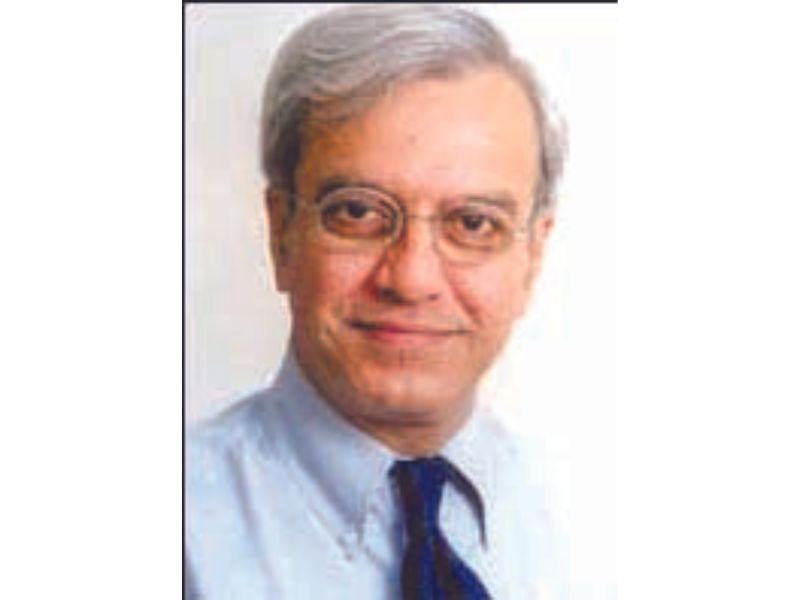There’s paranoia driving the mindset of BJP leaders. Overtly directed at religious minorities, its animosity is equally if not more, focused on westernised, English speaking segments of Indian society, writes Rajiv Desai

HERE’S A TRUE STORY: A DELEGATION OF Christians called on Narendra Modi soon after he assumed the office of prime minister in 2014, to seek reassurance that the new government would respect minority communities. A member of the delegation recalls encountering unwarranted hostility. Modi told him that Christians speak, read, and write in English which would enable them to plant stories vilifying the new government in international media.
The comment reveals the paranoia driving the mindset of BJP leaders. Overtly directed at religious minorities, its animosity is equally, if not more, focussed on westernised, English-speaking segments of Indian society. There’s a pervasive sense of inadequacy that stems from the BJP leadership’s difficulty with the language and the cosmopolitan culture it has engendered.
[userpro_private restrict_to_roles=
Unfamiliar with English and cosmopolitanism but aspiring to both, the mofussil Gujarati burns with resentment. Envious of their lifestyle and social confidence, they resort to ‘othering’ the English-speaking educated middle class. If an individual speaking English is Gujarati, they will likely to respond to him in broken pidgin, a sarcastic mix of Gujarati and English. A variant of this perversion is evident, especially among Gujaratis who emigrate to the United States: they speak American accented English and mix up phrases. For example, “right away” becomes “right the way.”
Modi and his favourite lieutenant speak fluent Hindi with flawless diction. This is probably because of RSS influence. Like most members of this secretive organisation, they have a problem with cosmopolitanism. Moreover, people from Gujarat are hemmed in by insularity in terms of language and diet, isolated not just from the world, but mainstream India as well. That’s why there aren’t many Gujaratis in the armed forces, civil service, and corporate world. As such, they are alienated from the rest of India and the world.
As demonstrated by Modi’s comment to Christian leaders, many Gujaratis have a chip on the shoulder. They experience an acute sense of inadequacy in engaging with the world. Especially when it comes to the English language. They also have a problem with cuisine. Not only are they mostly vegetarians, they have a problem with liquor. Prohibition has banished the concept of the cocktail hour and customary pairing of wine with meals. It’s not that they don’t drink socially, but believe drunkenness is an inevitable and desirable outcome.
On the subject of liquor prohibition, Gujarat’s prolonged liquor ban stems from the temperance movement of the early 20th century. Consumption of alcohol is viewed as moral perversion. In Gujarat, bars, cafes, and restaurants that serve spirits are absent. This is an hypocrisy because there’s a vast multitude statewide that imbibes privately. But whether liquor is offered to guests or poured for one’s own enjoyment, this is a furtive process. Hypocrisy seems to be the lifeblood of the middle class Gujarati.
The rise of Narendra Modi and Amit Shah to the pinnacle of power has to be viewed against this backdrop. As the country’s two most powerful politicians, they dictate the national agenda in mofussil style. In international conclaves prime minister Modi has fallen back on Hindi after a couple of disastrous experiments with English, while Shah doesn’t even attempt it. But his Hindi speeches are laced with menace. Often hectoring or threatening, he must get the tone right godfather style, best in a familiar language.
In too many ways, the current ruling dispensation is the polar opposite of Jawaharlal Nehru and the Indian National Congress. The aspirational values of democracy and national harmony have been swept aside; instead, a brash culture of shoot first, ask questions later has become normative. Consequently, riots, arson, violence have become idioms of the new politics. Inside the law, it is remarkable how bulwark institutions including the judiciary, the police, bureaucracy and media have been taken captive by this cowboy regime.
Those who bear the brunt of their boorishness are minorities, women, students, universities — anyone who crosses the Saraswati, an imposed line defined by its absence. This leaves the regime free to do as it pleases with dissenters and opponents. As evidence, consider the jail terms and harsh punishment meted out — as captured on a recently circulated video — in which policemen in plain clothes have been filmed whipping young men tied to poles.
Unmindful of public outcry, the regime has resorted to medieval governance. Acts of omission and misgovernance are seldom reported by an increasingly lapdog media including newspapers and television channels that seem overly anxious to kowtow. Between the regime and the bought or cowed media, there are few options for dissenters.
(Rajiv Desai is president of Comma Consulting and a well-known Delhi-based columnist)
[/userpro_private]












Add comment